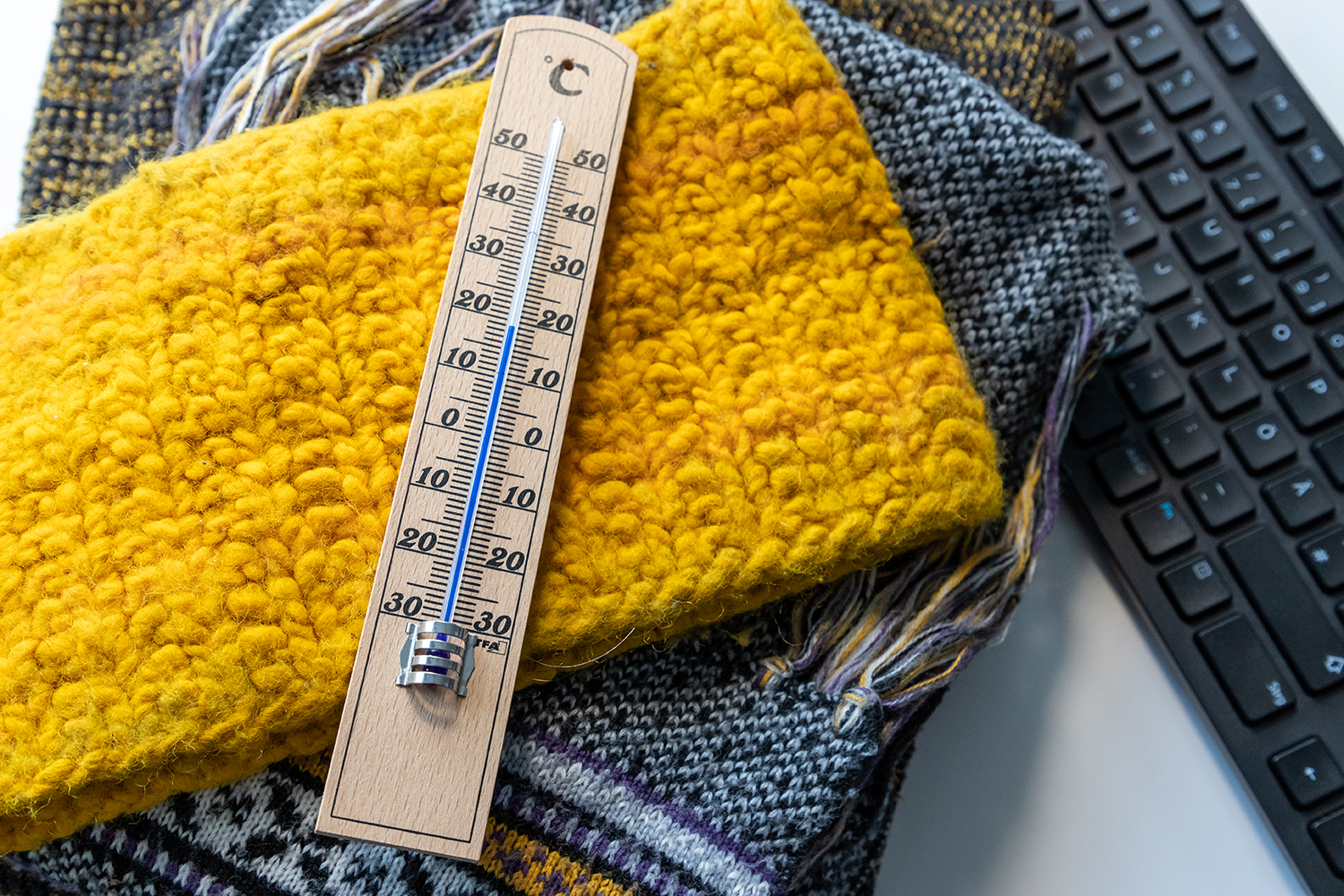Energy Saving Challenge: Gaining momentum for winter Positive results in heating, but room for improvement in saving electricity
The energy crisis affects everyone: students and staff at TU Braunschweig also have to adjust to saving energy. To this end, the University expanded and adapted its catalogue of measures before the cold season began. In October and November, everyone had to deal with the tougher day-to-day circumstances. As it turns out, a lot of energy has already been saved. But the winter is still long; in addition to heating energy, it is also important to reduce electricity consumption.

Photo credit: Kristina Rottig/TU Braunschweig
“We take the topic of saving energy very seriously and have discussed it in the team – not only since the beginning of the crisis, but especially since the war of aggression on Ukraine: What can we contribute with our five offices?” says Martin Mahnkopf, Head of the Division of Internal Auditing and Organisational Development at TU Braunschweig. The colleagues would all like to work in the office, but with two days in their home office they can already help to reduce energy consumption. His colleague Sabine Curland comments on the situation in the office: “When I start work at six in the morning, it’s actually too cold. It takes about an hour for the air in the room to warm up. At the beginning of the heating changeover, I couldn’t do it without a blanket, hot water bottle or jacket. In the meantime, that has changed, a hot water bottle is no longer necessary.” Saving electricity is of course also a topic in the division: “Wherever possible, we switch off unnecessary consumers, no standby mode, no unnecessary lights. This has become a matter of course,” says Mahnkopf.
Centralised and decentralised savings measures
We asked Henning Hartmann, team leader for Energy Management and Energy Consulting: “It has indeed become apparent that the measures are having an effect. We were surprised that the consumption in buildings with predominantly office use, i.e. with relatively few adjustable parameters in the area of energy optimisation, has dropped significantly.” Central measures to adjust the heating output, with the aim of achieving a room air temperature of 19 degrees Celsius, and to extend night and weekend lowering times, during which a lower heating output is provided, have the greatest savings potential. Individual measures such as careful use of electrical appliances and lighting, as well as not using side entrance doors without a vestibule, also contribute to saving energy. Extending the winter closing time will also save valuable kilowatt hours. All current and planned measures can be found on the website on energy saving.
Readjustment is an integral part
Claudia Walther works in the Institute of Technology and Design, which is located in a brick building on Schleinitzstraße: “In the first few weeks it was very cold in the building, especially on Monday, of course, as a result of the weekend lowering. I wondered if it was just a personal feeling. To rule that out, we documented the temperatures with a thermometer. After intensive contact with the Energy Management Department and staff from the Heating and Air Conditioning Systems Department, the colleagues found a solution.” Some of the energy-saving measures clearly encroach on one’s comfort zone. Even the energy management department does not have any patent remedies for this crisis, so that in some places adjustments have to be made. Energy Manager Henning Hartmann says: “With our energy-saving instruments, we are in line with the requirements of the federal government. Of course, things have to settle in. We depend on feedback from our colleagues and the students. That way, continuous optimisation can take place.” All requests are recorded in the ticket system, prioritised and gradually processed. However, priority is currently given to measures with great energy-saving potential, such as the optimisation of large ventilation systems in laboratories. The building management therefore asks for patience, but in principle every inquiry is taken seriously.
Clear effects
In the Advisory Committee on Security of Supply – where all faculties and status groups are represented – the results of the energy-saving measures were received positively. Dietmar Smyrek, full-time Vice-President and member of the committee, is also optimistic about the first evaluations of energy consumption. “We have a highly decentralised infrastructure, spread over several locations, with buildings of different equipment and different types of use. I am all the more pleased that we have already been able to achieve significant effects in the first weeks of the cold season.” In a next step, the advisory committee will analyse particularly energy-intensive infrastructures, he said. “Many thanks to everyone who supports the achievement of the energy saving goals so actively.”
